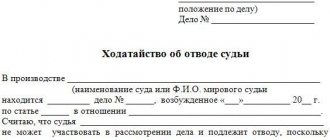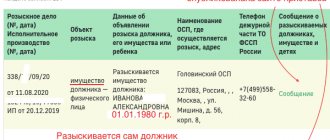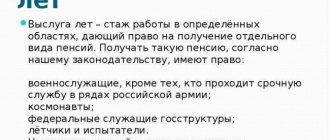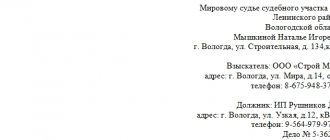Grounds for recusal
The basic grounds for disqualifying a judge are established by Art. 16 of the Code of Civil Procedure of the Russian Federation and include the following points:
- The judge previously participated in the consideration of the same case, being a prosecutor, a representative of one of the participants, a court secretary, a witness, a specialist, an expert or an interpreter. From September 1, 2021, this list will be supplemented by one more person - an assistant judge (Federal Law dated July 29, 2018 N 265-FZ).
- A judge is a relative or relative of a participant in the process or his representative. Family law provisions are used to interpret “kinship” and “property”. The degree of relationship does not matter for the challenge of a judge. Relatives are persons related by blood. Relatives - for example, brothers-in-law, sisters-in-law, etc., and in general the relatives of the wife or husband.
- The judge is personally interested in a certain outcome of the case. The nature and degree of interest do not matter.
- There are other circumstances that call into question the impartiality and objectivity of the judge when considering the case.
If the case is considered collegially, an additional basis for challenge is the family relationship of the judges. In this case, it is assumed that such a composition of the court cannot be appointed for the case initially. If the relationship is discovered later, then one of the relative judges must recuse himself. If an application for recusal is submitted, who exactly should be recused is decided by the composition of the court.
Communication between a judge and any of the participants in the process, their representatives before or outside the trial does not in itself constitute grounds for recusal. This rule is established by Part 3 of Art. 16 Code of Civil Procedure of the Russian Federation. However, if such communication, together with other circumstances, casts doubt on the impartiality and objectivity of the judge when considering the case, then this will serve as a reason for recusal. In this case, the person filing the challenge must justify what exactly the circumstances are and why they affect the objective hearing of the case.
Specific grounds for disqualifying a judge are established by Art. 17 Code of Civil Procedure of the Russian Federation. Their specificity is that they are applicable only to certain stages of the consideration of the case - first instance, appeal, cassation and supervision. As a general principle, a judge may not re-enter the case at any other stage of the proceedings. That is, in essence, a judge who has made a certain decision can no longer consider the case in any other instance, change or cancel his own decision.
Commentary on Article 16 of the Code of Civil Procedure of the Russian Federation
1. Part 1 of the commented article is similar in meaning to Part 1 of Art. 18 Code of Civil Procedure of the RSFSR.
Part 1 of Art. 120 of the Constitution of the Russian Federation establishes that judges are independent and are subject only to the Constitution of the Russian Federation and federal law. The implementation of this requirement presupposes the existence of a legislative mechanism that removes a judge from the process in cases where there are real circumstances that could affect his independence, objectivity and impartiality. Such a mechanism in civil proceedings is the institution of recusal of a judge (magistrate).
The grounds for withdrawal are:
1) participation of the judge in the previous consideration of the case as a prosecutor, court secretary, representative, witness, expert, specialist, translator. This basis excludes the possibility of a judge considering a case if previously in the same case he had a different procedural and legal status. This is quite reasonable, since the judge’s previous participation in the trial in a different capacity may affect his objectivity and impartiality.
However, the legislator did not cover all possible cases of previous participation of a judge. For example, a judge could previously have been a plaintiff in the case under consideration, and after concluding an assignment agreement, withdraw from the disputed legal relationship. Is it acceptable for the procedural legal predecessor of one of the parties to subsequently become a judge in this case? Of course not.
In comparison with the Civil Procedure Code of the RSFSR, the commented norm now includes an indication of a new subject of civil proceedings - a specialist;
2) family or inherent relations of the judge with any of the persons participating in the case or their representatives. In Part 2 of Art. 281 of the Code of Civil Procedure includes parents, children, brothers and sisters as close relatives. Family law reveals the concept of close relatives somewhat more broadly, including relatives in a direct ascending and descending line (parents, children, grandparents and grandchildren), full and half-blooded (having a common father or mother) brothers and sisters (paragraph 3 of Art. 14 SK).
We believe that the circle of persons who are covered by the concept of “relative” in paragraph 2 of part 1 of the commented article should include not only close relatives, but also all other relatives (including adopted children and adoptive parents) similar to the provisions set out in relation to inheritance by law ( see Chapter 63 of the Civil Code).
Judicial practice also proceeds from the inadmissibility of a restrictive interpretation of the concept of “relative”. In particular, the Plenum of the Supreme Court of the USSR, although its explanations are not formally subject to application <1>, indicated that family relations should be understood as the presence of not only close kinship, but also kinship of more distant degrees (cousins, sisters, etc.). The Presidium of the Supreme Court of the Russian Federation, interpreting a similar rule on the grounds for disqualifying a judge in criminal proceedings (Clause 2, Part 1, Article 59 of the Code of Criminal Procedure of the RSFSR), explained that relatives are understood not only as close relatives, but also as persons with more distant kinship relations < 2>.
——————————— <1> See sub. “c” clause 2 of the Resolution of the Plenum of the Supreme Court of the Russian Federation of January 20, 2003 No. 2 “On some issues that arose in connection with the adoption and entry into force of the Civil Procedure Code of the Russian Federation.” <2> See paragraph 6 of section. “Judicial practice in criminal cases” of the Review of legislation and judicial practice of the Supreme Court of the Russian Federation for the fourth quarter of 2002, approved by the Resolution of the Presidium of the Supreme Court of the Russian Federation of March 12, 2003.
A novelty is the reference in the commented norm to the relatives of the judge (relatives of the spouse of the judge himself). Such an innovation is completely justified, especially since previously both in judicial practice and in scientific and practical literature <1> the norm of paragraph 2 of part 1 of Art. 18 of the Code of Civil Procedure of the RSFSR was proposed to be interpreted broadly, extending it also to relatives;
——————————— <1> See, for example: Civil procedural legislation: Commentary / Ed. M.K. Yukova. M., 1991. P. 29.
3) personal, direct or indirect interest of the judge in the outcome of the case or other circumstances that cast doubt on his objectivity and impartiality.
The direct interest of a judge presupposes that he has a property or other legally protected interest in a certain resolution of a substantive legal dispute.
An indirect interest of a judge will occur in cases where the legal consequences of a judicial act issued in a case may affect the property or other legally protected interests of other persons in whose welfare the judge is interested.
Other circumstances that raise doubts about the objectivity and impartiality of the judge should include, in particular: a) the judge’s previous official dependence on any of the persons participating in the case or their representatives; b) the fact that the judge has another dependence (this refers to cases when the competence of one of the persons participating in the case or their representatives is to resolve issues in which either the judge himself or his relatives or in-laws are interested); c) the fact that the judge has legal obligations to any of the persons participating in the case or their representatives; d) the fact that any of the persons participating in the case or their representatives have legal obligations to the judge; e) friendly or hostile relations of the judge with any of the persons participating in the case or their representatives; f) the fact of the presence of statements by the judge about how the case will be resolved on the merits or a specific procedural issue (a similar basis is contained in clause 7, part 1, article 21 of the Arbitration Procedure Code; see also clause 6 of the Review of the judicial work of garrison military courts for 2000 <1>).
——————————— <1> Approved by the Military Collegium of the Supreme Court of the Russian Federation on January 3, 2001.
The list of grounds specified in the commented norm is exhaustive. At the same time, a judge is also subject to recusal if a judicial act was previously issued ordering the case to be considered by a different composition of judges (see Article 241, paragraph 3 of Article 361 of the Code of Civil Procedure), as well as if the rules on the inadmissibility of repeated participation of a judge in the consideration of the case (Article 17 of the Code of Civil Procedure).
2. The court hearing a case cannot include persons who are related to each other.
The question of the existence of kinship should be resolved similarly to the provisions formulated in relation to paragraph 2 of part 1 of the commented article.
We believe that this restriction should also apply to cases of consideration of the case in a higher instance (the court of a higher instance should not include a judge who is a relative of the judge who previously considered the case). However, this interpretation contradicts the literal meaning of Part 2 of the commented article, according to which the restriction applies only to the simultaneous presence in the judicial composition of persons who are related to each other.
Application of grounds
Almost all the reasons are clear.
If there is a specific fact, the judge must recuse himself or consider an application for recusal filed by a participant in the process. Family, inherent connections, the judge’s previous participation in the process in a certain status - all this can be easily confirmed with 1-2 documents. An exception is the basis provided for in clause 3, part 1, art. 16 Code of Civil Procedure of the Russian Federation. It allows you to file a challenge under any circumstances, when there are only suspicions about the bias and impartiality of the judge.
In order to prevent unfounded suspicions, to challenge the judge on the basis of clause 3, part 1 of Art. 16 Code of Civil Procedure of the Russian Federation it is necessary:
- Point out specific and real circumstances that indicate the judge’s interest in the outcome of the case or otherwise indicate his bias and impartiality.
- Prove the existence of such circumstances.
- Prove that there is a cause-and-effect relationship between such circumstances and the judge’s interest in the outcome of the case or his bias and impartiality.
All this must be stated in the application to challenge the judge. Thus, it is not enough to simply say that a judge is biased, biased, or has a vested interest in making a particular decision.
When can you submit an application?
Based on Art. 19 of the Code of Civil Procedure, a petition for recusal is submitted before the direct consideration of the conflict situation. Therefore, it is advisable to draw up this statement during the preliminary hearing.
But sometimes doubts about the impartiality of the judge arise already during the consideration of the dispute. Therefore, you can submit an application at any time . But for this there must be evidence of compelling reasons. If a person does not have confirmation of his words, then he will be refused.
Procedure for challenging a judge
If the initiator of the challenge of a judge is a participant in the process, then he must address the court with a corresponding application. It can be done either orally or in writing. The second option is considered preferable. This allows you to attach the application to the case and avoid incorrectly recording the applicant’s position and its justification in the minutes of the meeting.
There are no special procedural requirements for a recusal application. The most important thing is to clearly state what basis needs to be applied, why and how its presence is confirmed.
The procedure is regulated by Art. 20 Code of Civil Procedure of the Russian Federation . It differs somewhat from the procedure for disqualifying other participants in the process:
- The judge has the right to recuse himself at any time if he has established grounds for this.
- If a challenge is filed by a participant in the process and the case is considered by a single judge, the decision on the challenge is made by the judge himself.
- If the case is considered collegially, the decision to disqualify a judge is made collegially - by voting by the same composition of the court, but in the absence of the disqualified judge. If the votes “for” and “against” are equal, the decision is considered positive.
- If the case is considered collectively and several or all judges are challenged, then the issue is resolved by the full composition of the court. A majority vote is required to make a positive decision on recusal.
The decision to challenge is formalized by a ruling. If you disagree with it, you can appeal it, but, unfortunately, only together with the final decision in the case.
Arbitrage practice
In practice, many appeals submitted by participants in the trial are not satisfied. Usually the reason is a lack of evidence or the use of a subjective assessment.
An example is the following situation:
- a citizen complained about the actions of employees of the regional administration, filing a claim in a court of general jurisdiction in the city of Petropavlovsk-Kachastsky;
- the judge postponed the hearing for one month at the request of a representative of the local administration;
- before the start of the trial, the plaintiff’s lawyer filed an appeal to challenge the judge;
- the statement indicated that the plaintiff had doubts about the impartiality of the specialist, but there was no evidence;
- a negative decision was made on this petition, since there was no documentary evidence to support the plaintiff’s words.
Attention! Although the challenge is carried out before the consideration of the case materials, if during the proceedings the participants have new information about the judge, then they have the right to submit an application at any time. It is formed in writing, and the received evidence is also attached to it.
Consequences of a judge's challenge
They are indicated in Art. 21 Code of Civil Procedure of the Russian Federation:
- If a magistrate judge is removed, the case is transferred by the district court to another magistrate judge who works in the same judicial district. If such transfer is impossible, the issue is resolved by the court of the subject of the federation, which has the right to transfer the case to any magistrate from other regions of the region.
- If the case is heard by the district court and the challenge of one or more judges is granted, the case is transferred to another judge or judges. The issue is decided by the chairman of the court. If such transfer of the case is impossible, the decision is made by the court of the subject of the federation - it transfers the case to another district court in the region.
A similar approach is applied to cases considered by courts at the regional level. The case must be transferred to another judge or another panel of the court. If this cannot be done, the case is referred to the Supreme Court, which will decide which court to transfer it to.







